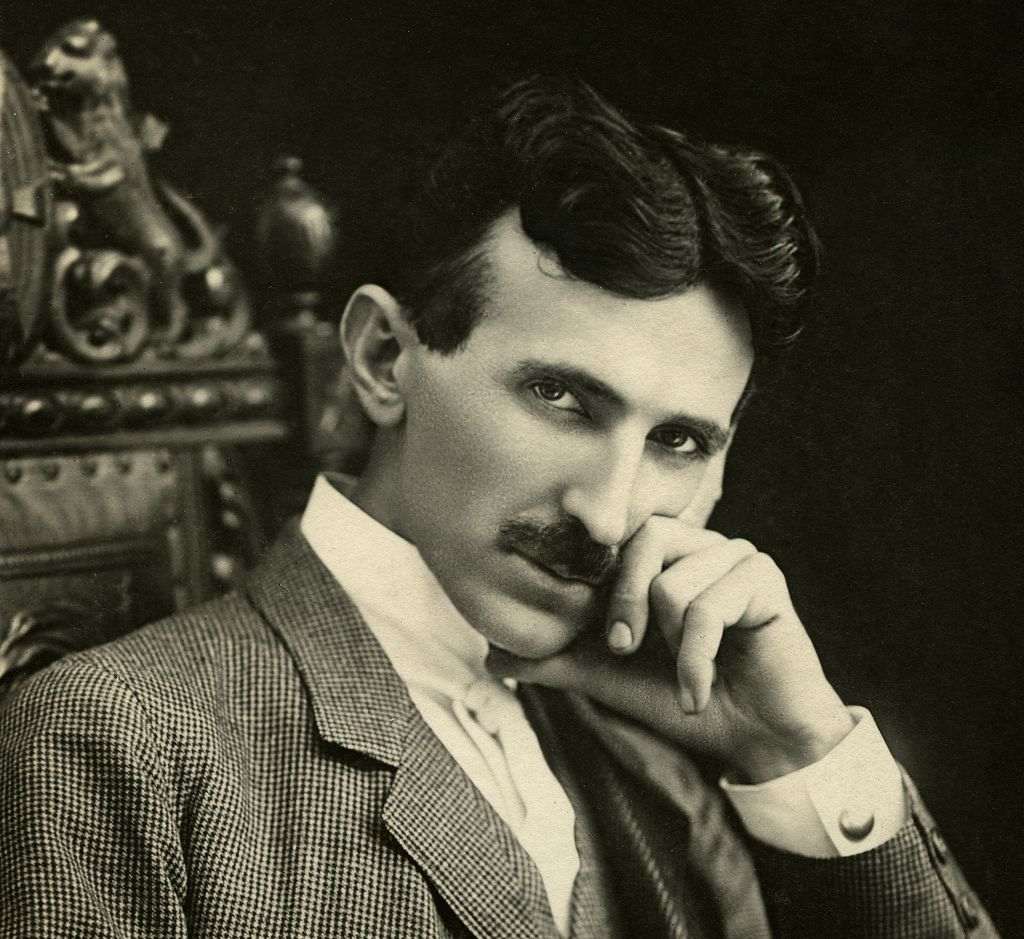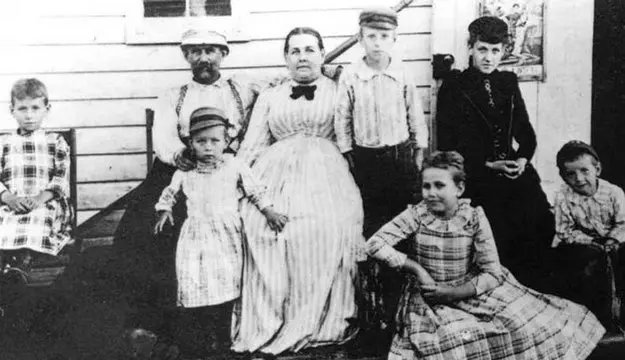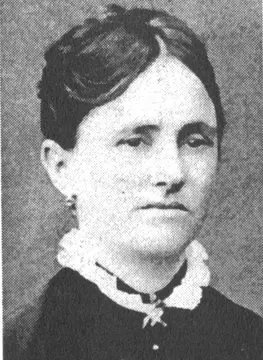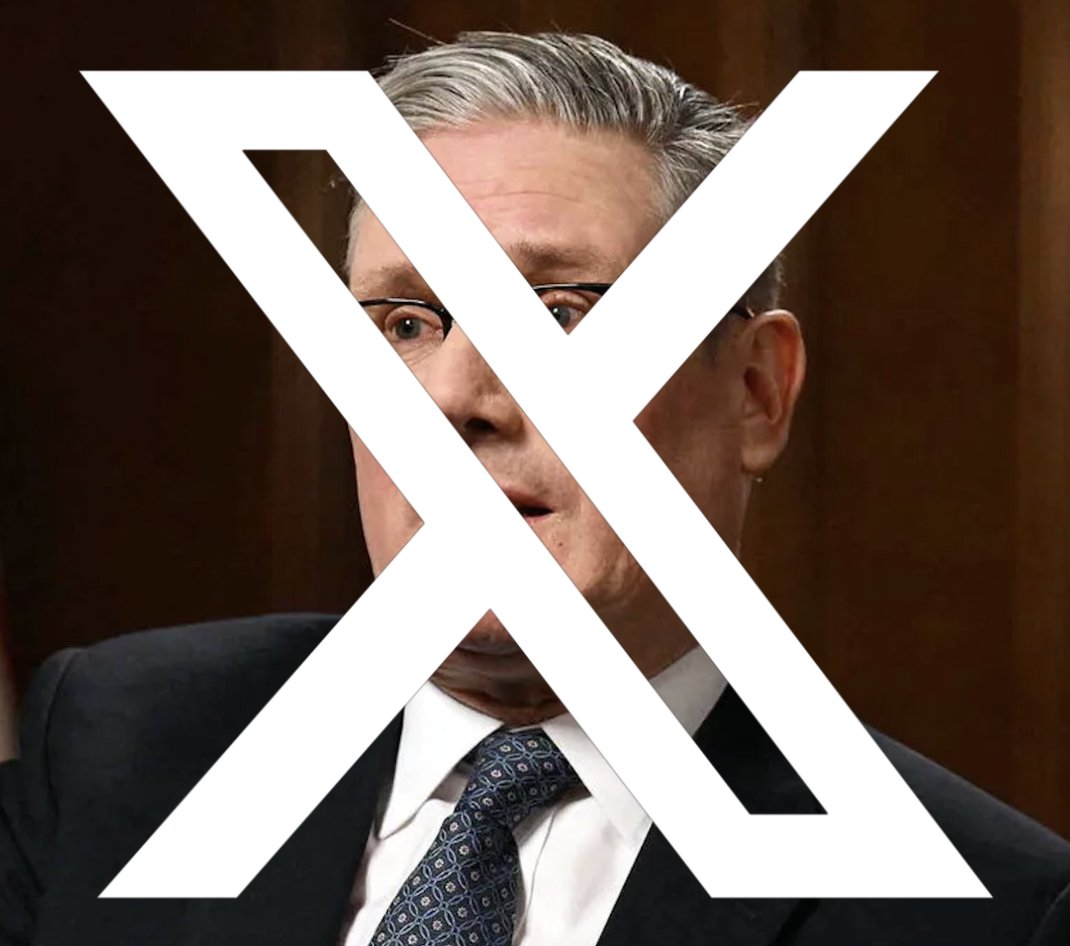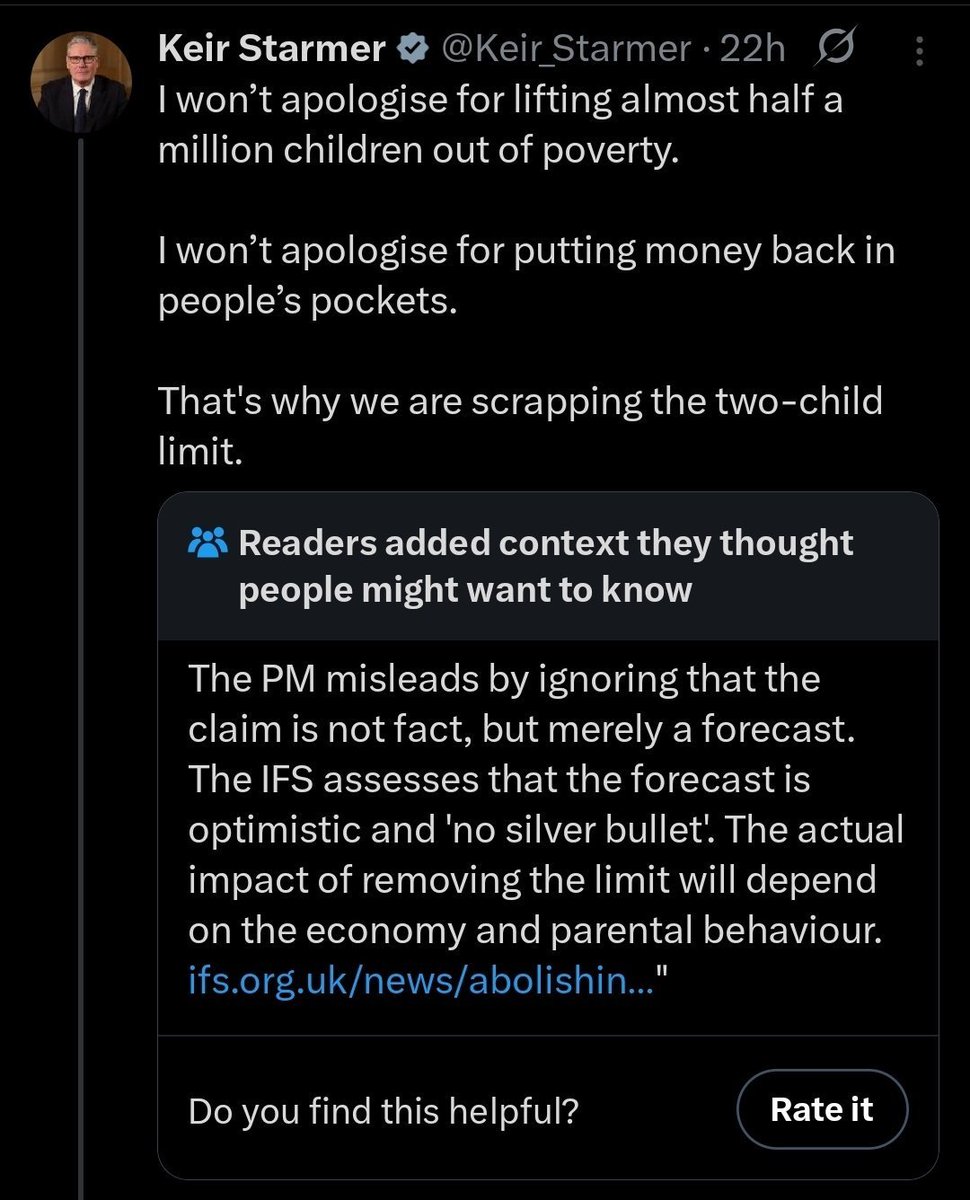Inside Corbyn’s Record on Antisemitism: Decades of Denial and Division 🧵
Jeremy Corbyn’s career is a decades-long saga of controversy, during which he has been regularly accused of abhorrent antisemitism. He, of course, denies these allegations.
Here is a look at his career as a politician and what has led to the development of these opinions. 🧵:
Jeremy Corbyn’s career is a decades-long saga of controversy, during which he has been regularly accused of abhorrent antisemitism. He, of course, denies these allegations.
Here is a look at his career as a politician and what has led to the development of these opinions. 🧵:
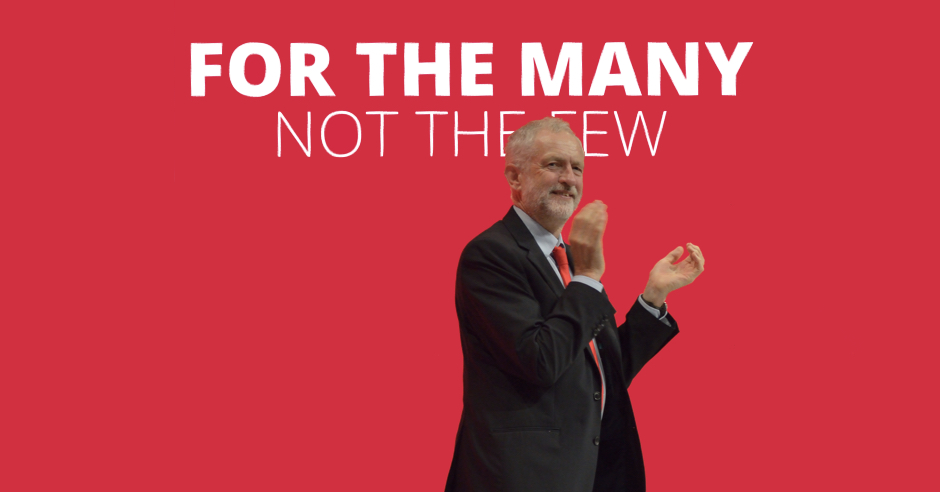
1. Corbyn began his political journey in the 1970s as a socialist firebrand in London’s Labour scene.
He was elected to Haringey Council in 1974, and quickly immersed himself in activism, supporting groups like Anti-Fascist Action, the Anti-Apartheid Movement, and the Campaign for Nuclear Disarmament.
However, his strong support for a united Ireland is what drew a lot of criticism, particularly due to his associations with the IRA.
He was elected to Haringey Council in 1974, and quickly immersed himself in activism, supporting groups like Anti-Fascist Action, the Anti-Apartheid Movement, and the Campaign for Nuclear Disarmament.
However, his strong support for a united Ireland is what drew a lot of criticism, particularly due to his associations with the IRA.
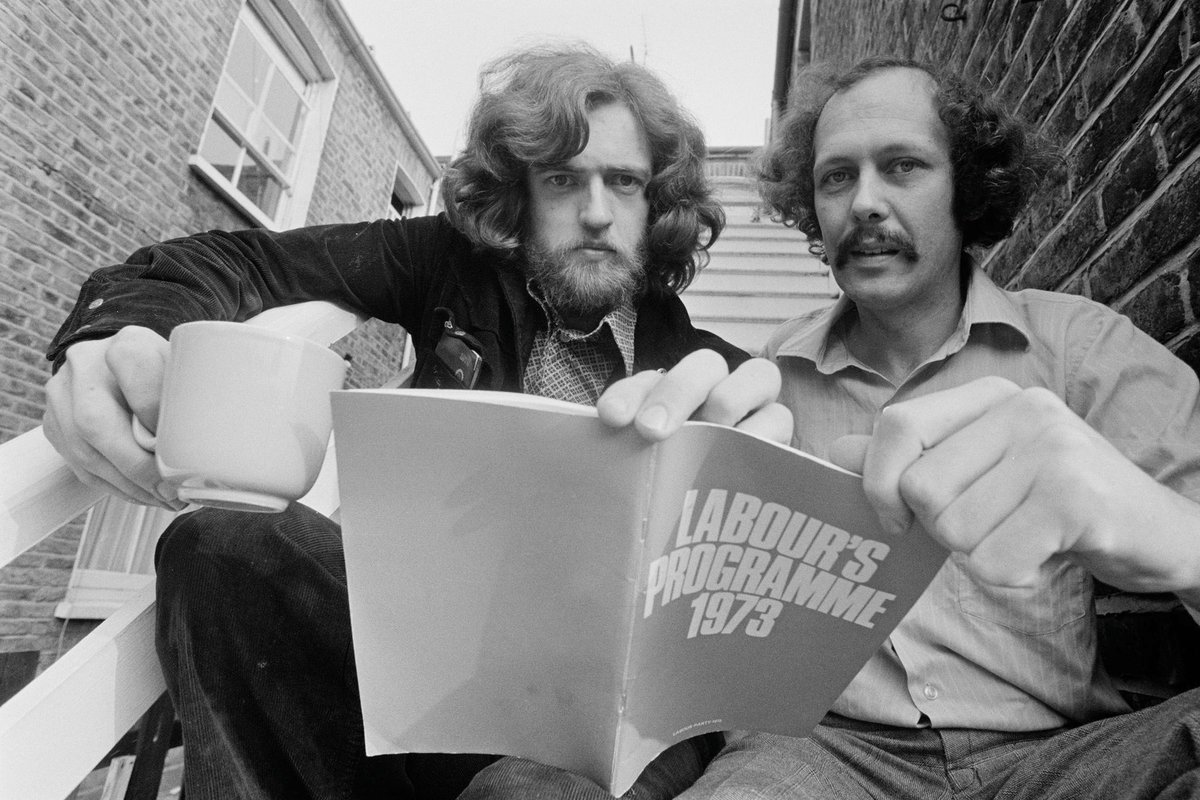
2. In the 1980s, Corbyn had close ties with Sinn Féin, the political wing of the IRA.
He met their leader, Gerry Adams, several times, including at the Labour conferences in 1983 and 1989.
In 1984, just weeks after the IRA’s Brighton bombing that killed five people, he invited IRA members to visit Westminster.
The Sunday Times reported that he was linked to 72 events supporting the IRA.
Corbyn pictured with Gerry Adams:
He met their leader, Gerry Adams, several times, including at the Labour conferences in 1983 and 1989.
In 1984, just weeks after the IRA’s Brighton bombing that killed five people, he invited IRA members to visit Westminster.
The Sunday Times reported that he was linked to 72 events supporting the IRA.
Corbyn pictured with Gerry Adams:

3. Corbyn’s response was that he was working towards peace, meeting with Sinn Féin to help resolve the Troubles.
He supported the 1998 Good Friday Agreement.
However, his refusal to clearly and strongly condemn IRA violence, led to accusations that he sympathised with terrorists.
He supported the 1998 Good Friday Agreement.
However, his refusal to clearly and strongly condemn IRA violence, led to accusations that he sympathised with terrorists.
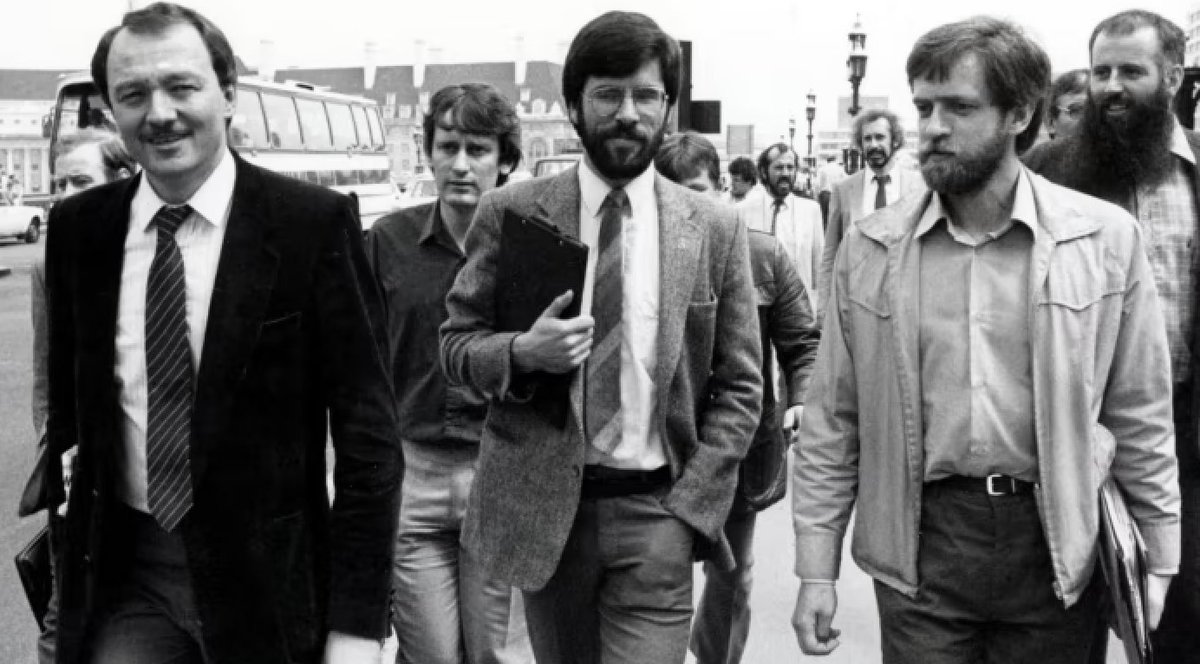
4. By the 1990s, Corbyn’s focus shifted to Middle East conflicts, particularly Palestine.
A long-time patron of the Palestine Solidarity Campaign, he advocated for Palestinian rights but faced backlash for ties to Islamist terror groups like Hamas and Hezbollah, both proscribed by the UK for targeting civilians and advocating Israel’s destruction.
In 2009, Corbyn sparked outrage at a parliamentary event, calling Hamas and Hezbollah “friends”:
A long-time patron of the Palestine Solidarity Campaign, he advocated for Palestinian rights but faced backlash for ties to Islamist terror groups like Hamas and Hezbollah, both proscribed by the UK for targeting civilians and advocating Israel’s destruction.
In 2009, Corbyn sparked outrage at a parliamentary event, calling Hamas and Hezbollah “friends”:
5. Corbyn expressed regret and said that using “inclusive language” was a mistake.
However, his 2013 trip to Gaza, partly funded by £2,800 from Interpal, a charity that was later investigated for links to Hamas, and his attendance at Al Quds Day rallies where antisemitic banners were displayed only raised more suspicion.
In 2015, he praised Iran’s “all-encompassing revolution,” even though the country is known for its anti-Israel rhetoric.
However, his 2013 trip to Gaza, partly funded by £2,800 from Interpal, a charity that was later investigated for links to Hamas, and his attendance at Al Quds Day rallies where antisemitic banners were displayed only raised more suspicion.
In 2015, he praised Iran’s “all-encompassing revolution,” even though the country is known for its anti-Israel rhetoric.

6. Antisemitism allegations followed Corbyn throughout his career.
In 2012, he defended a London mural called “Freedom for Humanity” by Mear One, which showed bankers with exaggerated antisemitic features.
In 2012, he defended a London mural called “Freedom for Humanity” by Mear One, which showed bankers with exaggerated antisemitic features.
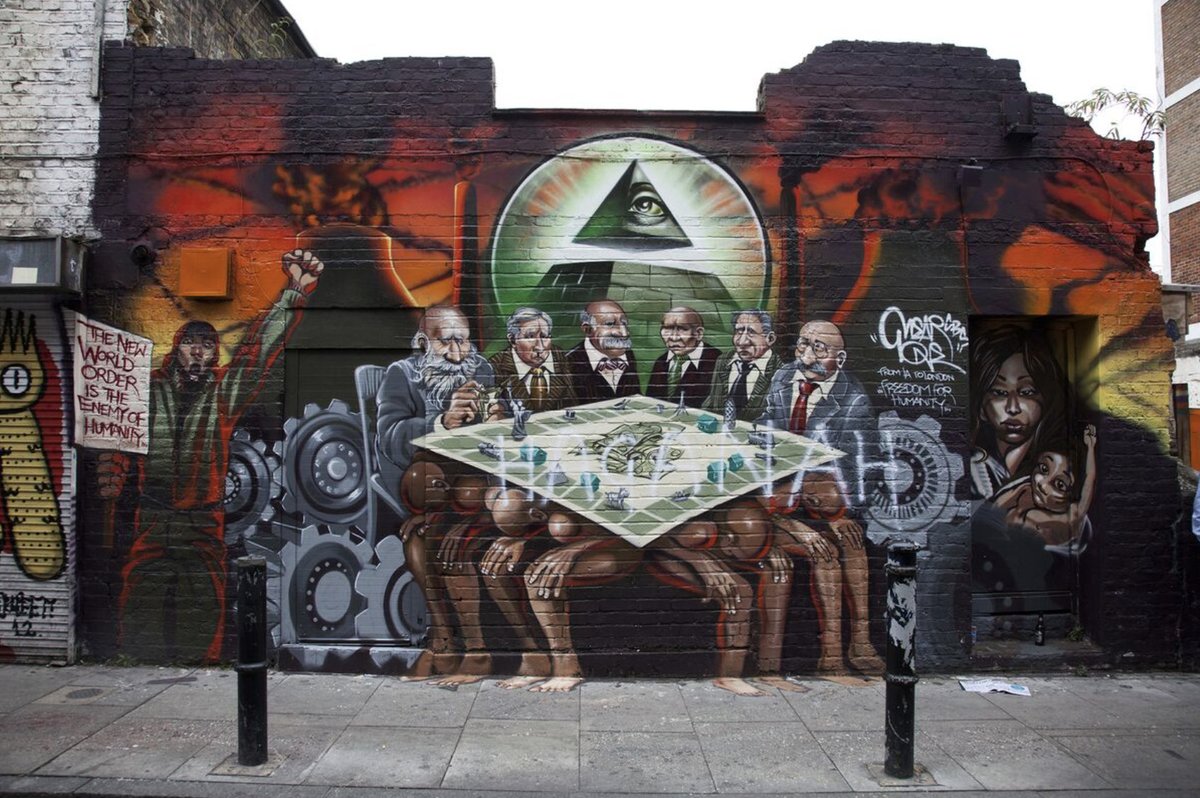
7. On Facebook, he called its removal censorship, only apologising in 2018 after backlash, claiming he missed the imagery’s implications. 

8. Other incidents kept adding up. In 2019, the Jewish Labour Movement gave a submission to the Equality and Human Rights Commission listing nine examples of Corbyn’s repeated ties to antisemitism.
These included defending a Holocaust denier back in 2010, praising a 1903 book that claimed Jews controlled global finance in 2011, and questioning why an activist was expelled over antisemitic comments in 2016.
news.sky.com/story/jeremy-c…
These included defending a Holocaust denier back in 2010, praising a 1903 book that claimed Jews controlled global finance in 2011, and questioning why an activist was expelled over antisemitic comments in 2016.
news.sky.com/story/jeremy-c…

9. During his time as Labour leader from 2015 to 2020, Corbyn faced a major antisemitism crisis within the party.
In 2020, the Equality and Human Rights Commission found Labour responsible for “unlawful” harassment and discrimination.
The report pointed to 23 cases where Corbyn’s office had interfered in how antisemitism complaints were handled.
This included reducing punishments for offenders and not properly training staff to deal with the issue.
In 2020, the Equality and Human Rights Commission found Labour responsible for “unlawful” harassment and discrimination.
The report pointed to 23 cases where Corbyn’s office had interfered in how antisemitism complaints were handled.
This included reducing punishments for offenders and not properly training staff to deal with the issue.
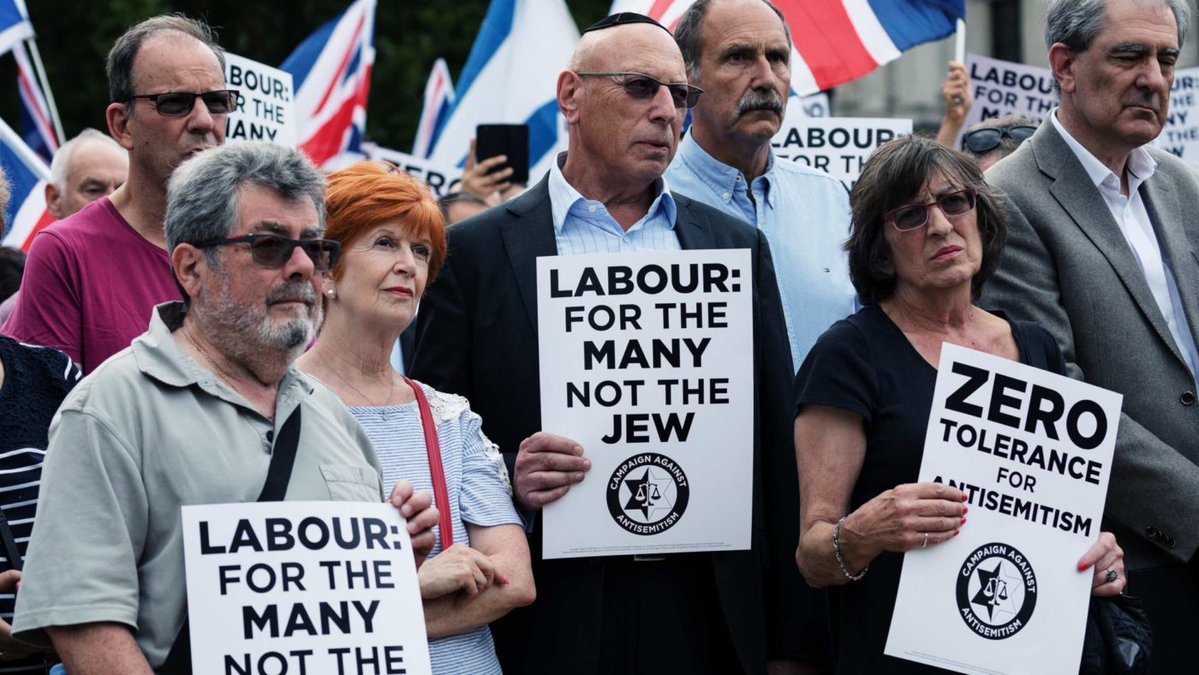
10. After the EHRC report was released, Corbyn was suspended from the Labour Party in October 2020 for saying that antisemitism had been “dramatically overstated” by his political opponents.
Although he was briefly readmitted to the party, he lost the Labour whip in November 2020, which meant he could no longer stand as a Labour MP.
His refusal to fully accept the EHRC’s findings, and his insistence that outside forces had exaggerated the problem, ultimately sealed his fate.
Although he was briefly readmitted to the party, he lost the Labour whip in November 2020, which meant he could no longer stand as a Labour MP.
His refusal to fully accept the EHRC’s findings, and his insistence that outside forces had exaggerated the problem, ultimately sealed his fate.
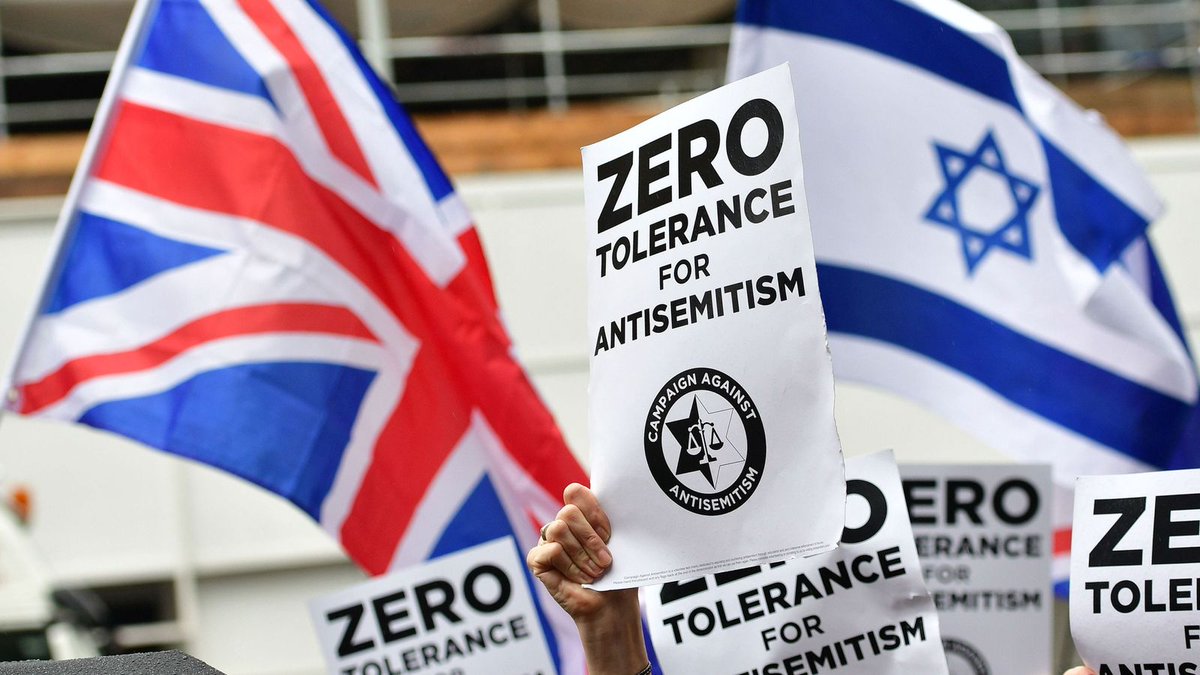
11. In 2024, Corbyn ran as an independent in Islington North and defeated the official Labour candidate, cementing his break from the party.
Following his full expulsion for defying Labour leadership, he went on to form a new political party in 2025.
The party, formed alongside Zarah Sultana, is made up almost entirely of Muslim members. Given the ongoing conflict between Israel and Gaza, this has further intensified scrutiny of Corbyn’s anti-Israel views and his allegedly antisemitic stance.
Following his full expulsion for defying Labour leadership, he went on to form a new political party in 2025.
The party, formed alongside Zarah Sultana, is made up almost entirely of Muslim members. Given the ongoing conflict between Israel and Gaza, this has further intensified scrutiny of Corbyn’s anti-Israel views and his allegedly antisemitic stance.

12. Labour’s poor showings in the 2017 and 2019 elections under Corbyn’s leadership were extremely damaging.
Many pointed to the antisemitism controversies as a key factor in the party’s decline during that period.
Now, with his new party reportedly made up almost entirely of Muslim members, it's not inaccurate to say that he’s moved further toward the political margins.
However, given the current state of UK politics, his new party is unlikely to gain any meaningful ground and will probably only serve to split the Labour vote.
The man once praised by his supporters as “the best prime minister Britain never had” will likely remain nothing more than a figment of leftist imagination, a fading relic of failed ambitions that never stood a chance.
Many pointed to the antisemitism controversies as a key factor in the party’s decline during that period.
Now, with his new party reportedly made up almost entirely of Muslim members, it's not inaccurate to say that he’s moved further toward the political margins.
However, given the current state of UK politics, his new party is unlikely to gain any meaningful ground and will probably only serve to split the Labour vote.
The man once praised by his supporters as “the best prime minister Britain never had” will likely remain nothing more than a figment of leftist imagination, a fading relic of failed ambitions that never stood a chance.

I truly appreciate everyone who takes the time to read my threads. They take a lot of research and effort to put together. If you’d like to support, you can do so through the link below. Every bit of support means a lot, and I’m very grateful. Thank you!
buymeacoffee.com/antspeaks1
buymeacoffee.com/antspeaks1
• • •
Missing some Tweet in this thread? You can try to
force a refresh


